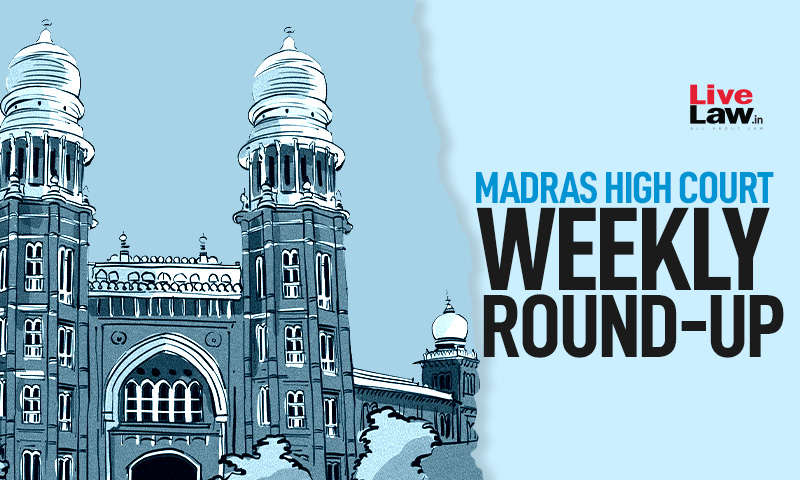Madras High Court Weekly Round-Up: March 17 to March 23, 2025
Upasana Sajeev
24 March 2025 10:15 AM IST

Next Story
24 March 2025 10:15 AM IST
Citations: 2025 LiveLaw (Mad) 107 To 2025 LiveLaw (Mad) 115 NOMINAL INDEX V. Samburanam v. District Collector, 2025 LiveLaw (Mad) 107Vijay Vaishnavi Sriram v. Union of India and Others, 2025 LiveLaw (Mad) 108S. Mayalagu v. The Director of Collegiate Education and Another, 2025 LiveLaw (Mad) 109Seeman v. State of Tamil Nadu, 2025 LiveLaw (Mad) 110Kavitha Anand v. The State of Tamil Nadu...
